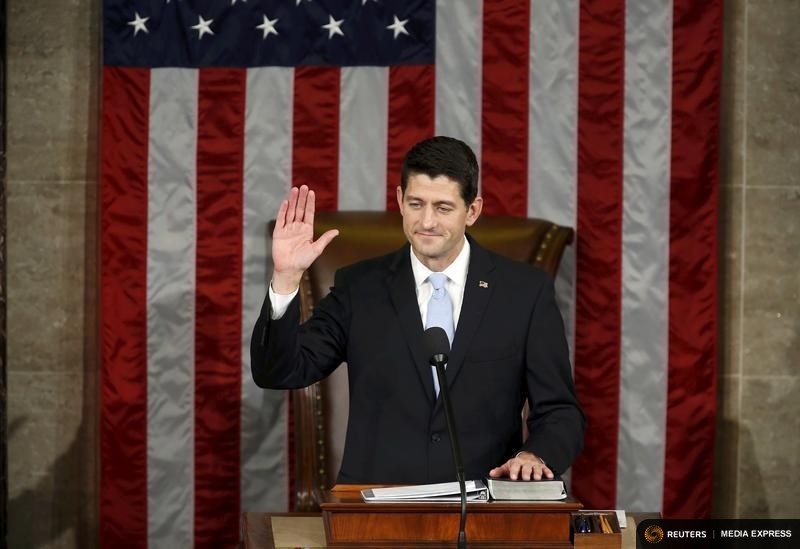Every presidential campaign strives to create a storyline in which their candidate is the hero capable of leading the world’s most powerful nation. External events complicate matters, like the attacks in Paris and California and a teetering global economy, and external actors pushing narratives of their own.
This week, two of those actors are influencing the race for the White House. Both have their own priorities — and their own megaphones.
One is House Speaker Paul Ryan, who used a summit on poverty this weekend in South Carolina to focus the Republican field on a big, thematic idea that goes beyond the small-ball squabbles over immigration and Ted Cruz’s birthplace. As national Republicans worry over the message candidates like Donald Trump send to the very voters the party desperately needs to court, Ryan is sounding a more significant tone, one he hopes will serve to reorient the Party of No in a more positive direction.
“We can reignite the enthusiasm for the American idea,” Ryan said Sunday on CBS’s Face the Nation. “My goal is that we, as Republicans — if we don’t like these laws, don’t like the direction the country is going, I think we have to be more than just an opposition party. We have to be a proposition party.”
Contrast that with the rest of the Republican field. When The Boston Globe asked presidential candidates for one big idea, Republicans almost uniformly took a narrow view: Jeb Bush wants to “restore cuts to strengthen the military.” Chris Christie wants more resources for law enforcement and the intelligence community. Carly Fiorina wants to “augment American leadership,” the definition of bland. Cruz, Jim Gilmore, Mike Huckabee and Rand Paul all mentioned tax cuts.
The answers from the two leading Democratic contenders are much more on Ryan’s scale: Hillary Clinton’s big idea is to “raise middle-class incomes.” Bernie Sanders’ big idea is to “reduce income inequality.”
“All of our responses to this question are varying degrees of stupid,” one exasperated Republican unaffiliated with any campaign emailed last week. “For most of the field we try to prove how smart we are as opposed to how much we care about the American people and that we can be trusted to change the direction of this country.”
Congressional parties usually echo their presidential nominees. Ryan has signaled he has no plans to take it easy this year. He wants House Republicans to take up tax reform, and to offer an alternative to the Affordable Care Act — despite the long odds either proposal would face in an election year.
Perhaps it’s no coincidence that when the topic of a potentially contested Republican convention comes up, GOP activists and strategists can’t help but bring up the prospect of a Draft Ryan movement.
The other external actor exerting his influence is President Barack Obama, who will use one of the last significant megaphone moments of his presidency both to shape his legacy and to influence the campaign. Obama will pitch an enthusiastic and optimistic vision of the country, one aimed more at influencing right-track wrong-direction opinion than this year’s congressional agenda.
“America can do anything. Even in times of great challenge and change, our future is entirely up to us,” Obama said in his weekly radio address. “And on Tuesday, I’m going to talk about the choices we have to make to set this country firmly on an even better, brighter course for decades to come.”
The American electorate is as divided over what they think of the direction of the country as they are over who should lead it next. The Obama coalition that Democrats so desperately need to recreate is much more optimistic about the future than voters who intend to vote Republican. The trouble for Hillary Clinton is that independents and white voters are almost as pessimistic as Republicans. Obama’s megaphone gives him the chance to change a few of those minds.
Obama’s name won’t be on the ballot, but his legacy will be. Ryan’s name isn’t on the ballot outside of his home district in Wisconsin, but the new speaker is already defending his party. No matter which candidate either party nominates, they’ll have to deal with both Obama and Ryan, both signaling early that they want a say in 2016.

